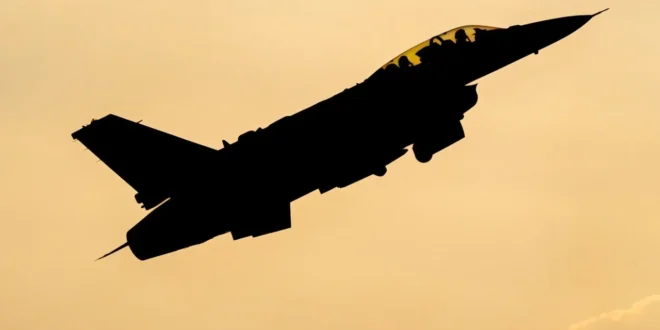What is needed is sustained and surgical military force that causes the Iranian regime to reconsider its immediate and long-term actions.
Israel, unlike the United States, has demonstrated its resolve to respond with force to each and every attack against it by Iran or its proxies. However, it is not just Israel’s willingness to use force that is noteworthy but its disposition to do so in a way that coerces and constrains Iranian power.
The United States should learn from Israel’s approach, particularly its April 19 strike inside Iran, and apply, together with Israel, a coercive strategy that seeks to constrain, degrade, and eventually collapse the Iranian regime.
The Biden administration has only recently come around to appreciate this approach when it took out an Iranian proxy commander in response to Iran’s January 28 drone attack that killed three U.S. servicemembers. Since then, Iran appears to have paused attacks against U.S. personnel. Up until that point, the United States had responded to Iranian proxy escalation by striking token weapons depots and killing low-level Iranian military bystanders, describing each response as “self-defense.” Unsurprisingly, those responses only encouraged Iranian escalation.
What is needed is a sustained and surgical military force that causes the Iranian regime to reconsider its immediate and long-term actions. Such an approach may force Iran to restrain itself from attacking American and partner forces, resulting in greater stability and peace in the region.
Inducing military planning paralysis within Iranian leadership circles is part of an end state of regime collapse, for which the Jewish Institute for National Security of America (JINSA) has argued since 2020.
Based on how the United States dealt with the Soviet Union, JINSA President and CEO Dr. Michael Makovsky explained “regime collapse” as advancing “the political decomposition process already underway in Iran and do nothing to slow it down…[and] implement a campaign to exacerbate the regime’s internal contradictions and domestic tensions so that it eventually collapses from within.”
Israel’s April 19 strike that disabled a radar system at the Natanz nuclear facility in Isfahan represents a key step in this approach. Now, Iran needs to consider that Israel can penetrate its air defenses and inflict harm to critical infrastructure inside Iran—something that no doubt will frustrate Iran’s inner circles about what it should do next.
That coercive effect echoes how Israel has responded to Iran-backed proxiesacross the region over the last decade and certainly since October 7.
From the perspective of this end state of fostering planning paralysis, Israel’s objective of eradicating Hamas in Gaza not only eliminates a fundamental security threat but also rids Iran of a proxy on Israel’s doorstep, thereby complicating Iran’s efforts to attack Israel while diminishing Iran’s footprint in the region.
Israel’s actions in Syria resulted in Iran’s decision to withdraw its presence from the country in early 2024 after Israel had eliminated a string of Iranian officers in late 2023. Iran realized it could not sustain its presence or activity in Syria.
The more the prospects of regime collapse increase, the more divided Iran’s political and military advisors and decision-makers become. One way to deepen those divisions is to use force to affect Iran’s strategic calculus, thereby changing the course of Iranian regime decision-making.
Today, there must be a heightened degree of internal friction within Iranian decision-making circles. It is important that Iran has determined, at least for now, not to respond to Israel’s April 19 strike. The decision-making process is likely further complicated by the unexpected presidential election and related succession question following the sudden death of Iran’s president and foreign minister.
Mike Tyson said that “everyone has a plan until they get punched in the mouth.” Because of Israel’s coercive approach to force, Iran cannot identify the boxing ring. By raising internal confusion, Israel has helped the Iranian regime take steps towards its political decomposition, if not its collapse.
Iran must be considering its options, having been embarrassed in its state-on-state confrontation with Israel, losing three senior generals in Syria and over 300 Hezbollah fighters and infrastructure in Lebanon. Soon, it will lose a proxy in Gaza. The only successful regional escalation was by the Houthis, over whom Iran had little direct control.
If preventing Hamas from replicating its actions on October 7 is not justification enough to support unconditional aid to Israel, then preventing its patron, the Iranian regime, from planning its own future should be.
 Geostrategic Media Political Commentary, Analysis, Security, Defense
Geostrategic Media Political Commentary, Analysis, Security, Defense





